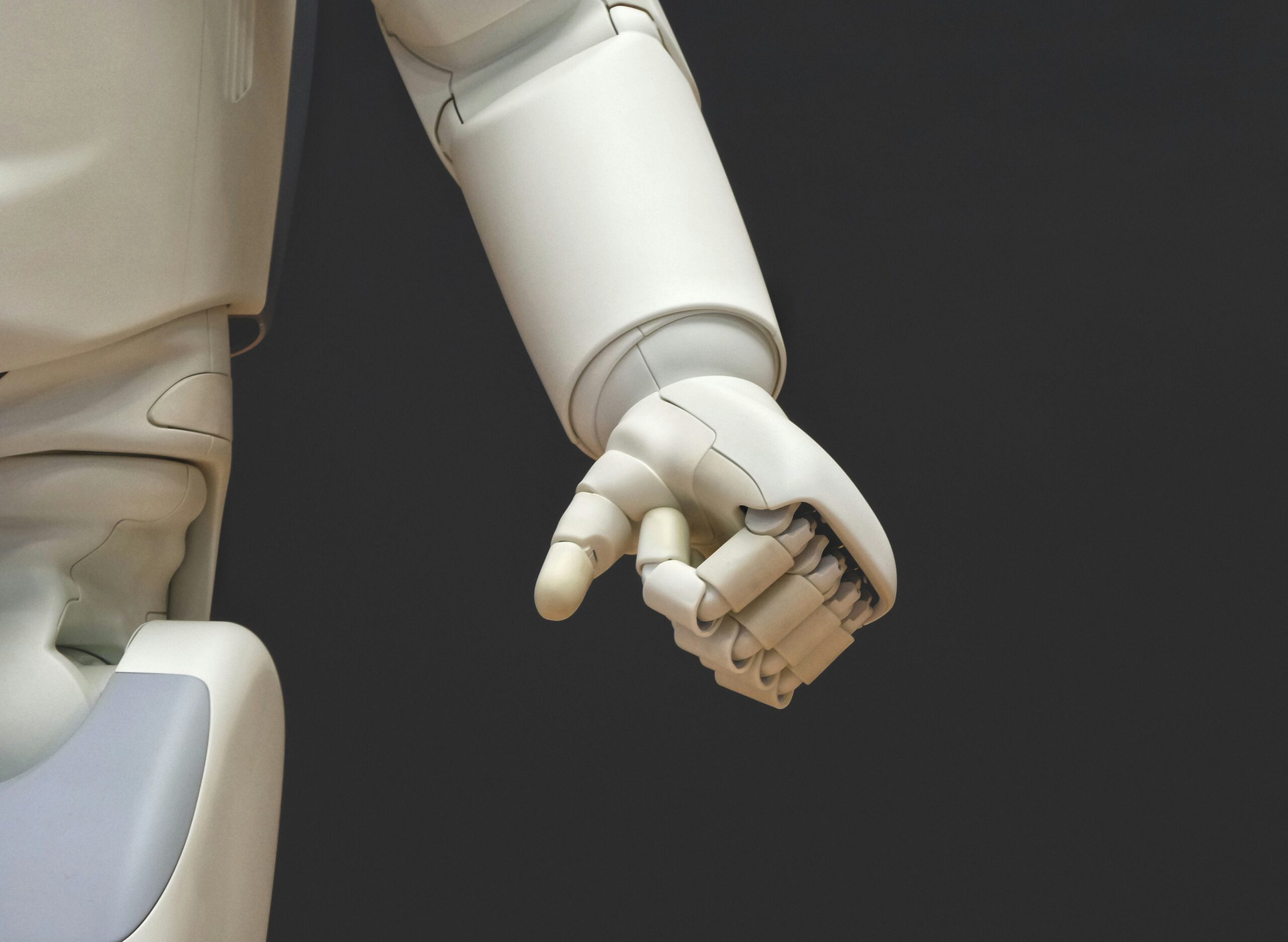The AI Arms Race: Are Nations Prepared for the Consequences?
 Photo by Cash Macanaya on Unsplash
Photo by Cash Macanaya on Unsplash Introduction to the AI Arms Race
The concept of the AI arms race refers to the increasing competition among nations to develop and deploy advanced artificial intelligence technologies for military and strategic advantages. As countries recognize the transformative potential of AI in various sectors, there is a corresponding urgency to invest heavily in these technologies, especially within defense and security domains. Governments worldwide are channeling significant resources into AI research and development, with the aim of gaining an edge over potential adversaries.
AI technologies are being incorporated into various military applications, including autonomous weapons systems, surveillance, cybersecurity, and logistics. These advancements promise to enhance operational efficiency and decision-making processes. Nations that successfully harness the capabilities of AI can not only improve their current military capabilities but also deter potential threats by showcasing advanced technological prowess. Consequently, major powers are intensifying their efforts to dominate this rapidly evolving field, leading to what many observers describe as a new kind of arms race.
This competitive atmosphere raises several critical concerns regarding global security. The race for AI supremacy may lead to destabilizing arms build-ups, as nations pursue innovative solutions at an accelerated pace. Furthermore, the lack of established ethical guidelines and regulations surrounding AI deployment amplifies the risks associated with these technologies. The imminent possibility of AI-driven military conflicts and the potential for accidents or misunderstandings from autonomous systems makes the situation more precarious. As nations prioritize their strategic interests, it is essential to consider the broader implications of the AI arms race and explore ways to foster international cooperation in this crucial domain.
Current State of AI Developments in Military Applications
The domain of military applications has seen an unprecedented surge in artificial intelligence (AI) developments in recent years. Nations across the globe are investing heavily in AI technology, particularly in the realm of defense, where its potential benefits could redefine military strategies and operational capabilities. Autonomous weapons systems represent one of the most significant advancements. These systems, capable of identifying and engaging targets with minimal human intervention, have already been actively researched and tested by various countries, including the United States and Israel. Such technologies promise enhanced precision and reduced risks to human soldiers in combat scenarios.
Another pivotal area of AI integration within the military context is intelligence analysis. AI algorithms are being employed to process vast amounts of data collected from various sources, including satellite imagery and social media. By utilizing machine learning techniques, military analysts can derive actionable insights much more swiftly than traditional methods would permit. For instance, the U.S. Department of Defense has developed programs that analyze patterns in data to predict adversary movements and strategies, thus accelerating decision-making processes.
Robotic soldiers and unmanned ground vehicles (UGVs) also signify a forward leap in military AI applications. Countries like Russia and China have been experimenting with robots designed to support ground troops, carrying out reconnaissance missions or even performing logistics tasks under combat conditions. These innovations highlight a strategic shift toward automation in military operations, aiming to enhance operational efficiency and reduce casualties.
The current state of AI developments in military applications underscores a growing urgency among nations to harness these capabilities. The strategic priorities behind these innovations often entail national security, deterrence, and maintaining technological superiority. As the competition intensifies, understanding the implications of these advancements will be crucial for global stability and security.
Key Players in the AI Arms Race
The AI arms race is characterized by a number of key nations actively vying for technological supremacy. Noteworthy among these are the United States, China, and Russia, each adopting distinct strategies to enhance their artificial intelligence capabilities. The motivations driving these investments are multifaceted, often deeply rooted in geopolitical ambitions and national security concerns.
The United States remains a leader in AI research and development, with substantial investments made by both the government and private sector firms. Initiatives such as the National AI Initiative Act and funding programs through the Defense Advanced Research Projects Agency (DARPA) showcase the country’s commitment to maintaining its technological edge. The U.S. focuses heavily on military applications of AI, promoting its integration into defense systems, cybersecurity, and battlefield capabilities. The overarching goal is to safeguard national interests and advance its strategic position globally.
China, on the other hand, has aggressively pursued its AI objectives, with the government positioning AI as a national priority in the “Next Generation Artificial Intelligence Development Plan.” This ambitious strategy aims to dominate global AI innovation by 2030. China’s extensive spending on AI research and development is often accompanied by state support for emerging tech companies. The Chinese approach is distinctly characterized by a focus on leveraging AI for social control and increasing military prowess, reflecting its desire to enhance its soft power and assert dominance on the international stage.
Russia’s involvement in the AI arms race, while less publicized, is equally significant. The country is investing heavily in AI technologies with particular attention to military applications, evidenced by initiatives such as the National Strategy for the Development of AI. Russia seeks to leverage AI to bolster its defense capabilities and maintain its influence among competing powers.
Other nations, including the European Union and India, are also making strides in AI development, aiming to position themselves as key players in the global landscape. Collectively, these nations contribute to a complex and rapidly evolving AI arms race, with implications that extend beyond technology into spheres of international relations and security.
Ethical Considerations and Concerns
The deployment of artificial intelligence (AI) in military contexts raises significant ethical implications that warrant thorough examination. One of the primary concerns is the development and use of autonomous weapons systems. These systems can operate without direct human intervention, leading to questions about accountability and moral responsibility in warfare. When machines make decisions about life and death, the potential for errors or unintended consequences increases, undermining the ethical principles governing armed conflict.
Moreover, the loss of human oversight in military operations is a pressing ethical concern. Historically, human judgment has played a crucial role in assessing the complexities of warfare. The advent of AI could facilitate a shift towards algorithm-driven decision-making, which may not adequately reflect the nuances and moral considerations of combat situations. This shift raises concerns regarding the adequacy of AI to interpret the ethical dimensions of warfare, particularly the justifications for engaging in combat or withdrawing forces from a threat.
Another significant ethical issue relates to the potential violations of international law. The development of AI in military applications must align with existing legal frameworks such as the Geneva Conventions. The increased automation in warfare could lead to scenarios where compliance with international humanitarian law becomes challenging. Determining the legality of an AI’s actions in combat or its adherence to principles like distinction and proportionality poses significant hurdles.
Finally, the moral dilemmas associated with AI decision-making in warfare cannot be overlooked. Algorithms are ultimately derived from human perspectives, yet they may lack the capacity for empathy and the understanding of human suffering. This disconnect raises profound questions about the morality of employing AI in situations where the preservation of human life and ethical considerations should be paramount. As nations forge ahead in incorporating AI into their military strategies, addressing these ethical considerations is essential to ensure that technology serves humanity rather than exacerbating conflict.
Potential Consequences of the AI Arms Race
The advent of artificial intelligence (AI) technology has ushered in an era of profound change across numerous sectors, yet its implications for global security merit serious consideration. As nations strive to advance their military capabilities through AI, the potential consequences of this AI arms race could be far-reaching and hazardous. One primary concern is the risk of escalating conflicts. Traditional power dynamics may be disrupted as nations increasingly rely on AI systems, leading to misunderstandings or miscalculations during periods of heightened tension.
Moreover, the proliferation of military-grade AI technologies can potentially give rise to arms races akin to those seen during the Cold War. State and non-state actors alike may pursue increasingly sophisticated AI tools, seeking to establish and maintain superiority. This proliferation may foster an environment where shortcuts in ethical considerations become the norm, possibly resulting in the deployment of AI in conflict scenarios that could have devastating consequences.
Another critical aspect to consider is the possibility of catastrophic wars precipitated by an AI arms race. With autonomous systems capable of making real-time decisions without human intervention, the risk of unintended engagements increases significantly. The automation of warfare raises ethical and operational dilemmas, particularly regarding accountability for actions taken by AI-driven military systems. There is an inherent danger that these systems could operate outside of human control, leading to conflicts spiraling out of regulation.
Furthermore, the disparities in AI advancements among nations may destabilize international relations. Countries lagging in technological development may find themselves at a strategic disadvantage, fostering resentment and mistrust that can exacerbate tensions. The unequal distribution of AI capabilities could encourage aggressive postures, effectively reshaping global security dynamics in unforeseen ways.
The intersection of these factors underscores the need for robust international dialogue and cooperation, to mitigate risks associated with the AI arms race, ensuring that advancements in technology do not compromise global stability.
International Responses and Regulatory Efforts
The advent of artificial intelligence (AI) technologies has spurred an arms race among nations, leading to an urgent call for coherent international responses and regulatory efforts. Various countries recognize the potential implications of these advancements in military applications and the necessity for robust governance to mitigate risks. Currently, a range of initiatives is underway, aiming to address the challenges posed by the integration of AI into national defense systems.
One notable initiative is the development of international treaties that seek to establish guidelines governing the use of AI in warfare. This involves the recognition of ethical considerations, accountability, and transparency surrounding the deployment of AI technologies. Several nations have actively participated in dialogues at forums such as the United Nations (UN) and the Conference on Disarmament, advocating for norms and standards that can help govern the use of AI in military operations. These discussions include proposals for a global ban on fully autonomous weapon systems, often referred to as “killer robots.”
However, the journey towards establishing a cohesive regulatory framework is fraught with challenges. Disparate national interests, varying ethical viewpoints, and the competitive nature of AI development impede consensus-building efforts among states. Some nations prioritize technological advancement for national security, viewing AI as a strategic asset, while others advocate for stricter regulations to prevent escalation and misuse. Additionally, the rapid pace of AI innovation complicates the task of creating regulations that remain relevant over time.
This dynamic landscape calls for an increased emphasis on multilateral cooperation and collaboration among nations. Establishing a shared understanding of the risks and benefits associated with AI technologies is vital. As the international community grapples with the implications of the AI arms race, effective regulatory frameworks will be pivotal in promoting responsible use and ensuring that these powerful technologies do not exacerbate conflicts or pose threats to global security.
Balancing Innovation and Safety
The rapid advancement of artificial intelligence (AI) presents both opportunities and challenges for nations around the globe. As countries vie for technological superiority, the race to develop innovative AI systems must be tempered with a vigilant approach to safety considerations. This delicate balance is crucial to ensure that the pursuit of innovation does not override ethical standards or lead to unpredictable outcomes, particularly in the context of military applications.
Responsible development of AI technologies is paramount. Nations must establish clear regulations and frameworks that guide the creation and deployment of AI systems, particularly those used in national defense and security. Ensuring ethical considerations are integrated into the design and implementation of AI can help mitigate risks associated with algorithmic bias, lack of accountability, and potential misuse in warfare. By prioritizing ethical development, nations can support innovation without sacrificing safety or morality.
Moreover, collaborative international dialogues are essential to define the boundaries of AI usage in military settings. These discussions should focus on creating treaties and agreements that emphasize the importance of human oversight in critical decision-making processes. Unregulated AI systems in warfare could lead to scenarios where lethal decisions are made autonomously, raising significant humanitarian concerns. Establishing robust guidelines to govern the deployment of AI in these high-stakes environments is essential to prevent unintended consequences.
Ultimately, nations are faced with the critical challenge of fostering innovation while maintaining a steadfast commitment to safety. It is not only a matter of advancing technology but also ensuring that such advancements align with the broader goal of safeguarding human rights and ethical conduct in warfare. As the AI arms race continues, finding the right equilibrium between innovation and safety will be fundamental in shaping the future landscape of global security.
Technological Trends Shaping the Future of Warfare
The integration of artificial intelligence (AI) into military frameworks is fundamentally altering the landscape of modern warfare. Among the key technological trends shaping this evolution are deep learning, machine learning, and advanced data analytics. These technologies collectively enhance decision-making capabilities and operational efficiency, presenting both opportunities and challenges for nations globally.
Deep learning, a subset of machine learning, employs neural networks to process vast amounts of data, improving recognition accuracy in real-time situations. This capability is particularly crucial in scenarios like aerial surveillance, where identifying and distinguishing between targets can dictate the success of a mission. The military’s adoption of deep learning algorithms allows for more precise targeting and reduced collateral damage, potentially transforming operational strategies.
Furthermore, the emergence of machine learning technologies enables systems to adapt and optimize based on previous engagements. As military assets become increasingly data-driven, these algorithms can learn from battlefield scenarios to improve future performance. Units equipped with AI-driven drones, for instance, can autonomously analyze environments and make rapid tactical decisions. This shift toward automation and autonomous functioning can significantly alter military engagements, where speed and accuracy are paramount.
Data analytics also plays a vital role in shaping future warfare. By harnessing large datasets from various sources—satellite imagery, sensor inputs, and social media—the military can gain valuable insights into enemy movements and predict potential conflicts. Enhanced analytical capabilities allow for better scenario planning and responsiveness, ultimately leading to informed strategic decisions.
As nations continue to develop and refine these technologies, the prospects for modern warfare are being reshaped dramatically. The ongoing AI arms race underscores the necessity for countries to evaluate their preparedness in addressing the implications of these advancements. This evolution demands a comprehensive understanding to maximize benefits while minimizing potential risks associated with AI in warfare.
Conclusion: Preparing for the Future
The rapid advancement of artificial intelligence (AI) technologies has initiated an unprecedented arms race among nations, highlighting the urgent necessity for preparedness to manage its profound consequences. Throughout this discussion, we have examined various dimensions of the AI arms race, ranging from military applications to the potential for economic disruption. These insights underscore the essential need for proactive initiatives that foster security and stability in an intricately interconnected global landscape.
It is imperative that nations prioritize the establishment of ethical frameworks and guidelines to govern the development and deployment of AI systems. By embracing a cooperative approach, countries can work collaboratively to define parameters that ensure responsible AI usage, mitigating risks associated with its misuse. Such international cooperation is crucial for preempting conflicts that can arise as nations compete for technological superiority. A unified stance can facilitate dialogue that addresses ethical concerns, compliance with human rights, and broader societal implications of AI technologies.
Moreover, deploying AI responsibly can yield substantial benefits not only for security but also for global development. By focusing on shared goals and collective interests, nations can transform the current arms race into a collaborative effort towards positive innovation. The implications of this technology extend beyond the military realm; they offer opportunities for advancements in healthcare, environmental sustainability, and economic growth. Therefore, an integrated approach that considers both competitive and cooperative elements will be essential in shaping a future where societies can thrive without the overshadowing threat of AI-driven conflicts.
In summary, the consequences of the AI arms race will reverberate across all dimensions of society. By adopting a proactive stance today, nations can steer the trajectory of AI development towards a future characterized by safety, ethical integrity, and shared prosperity.



No Comments